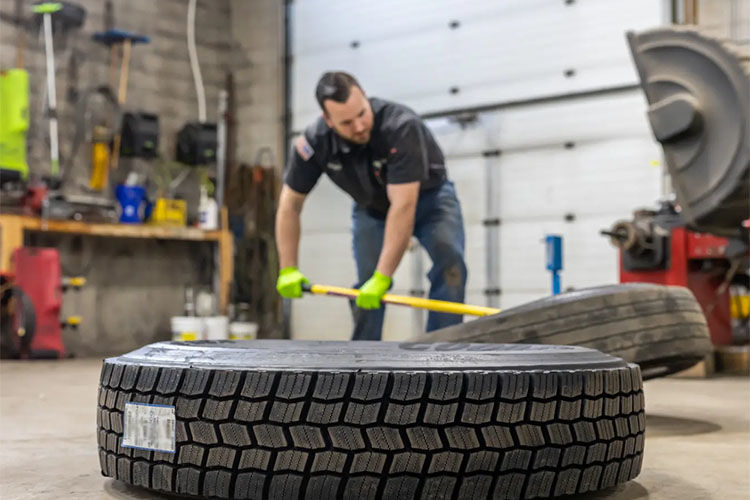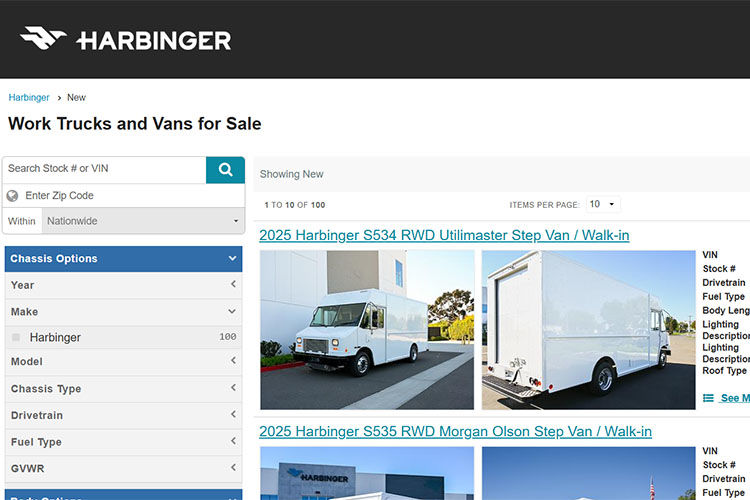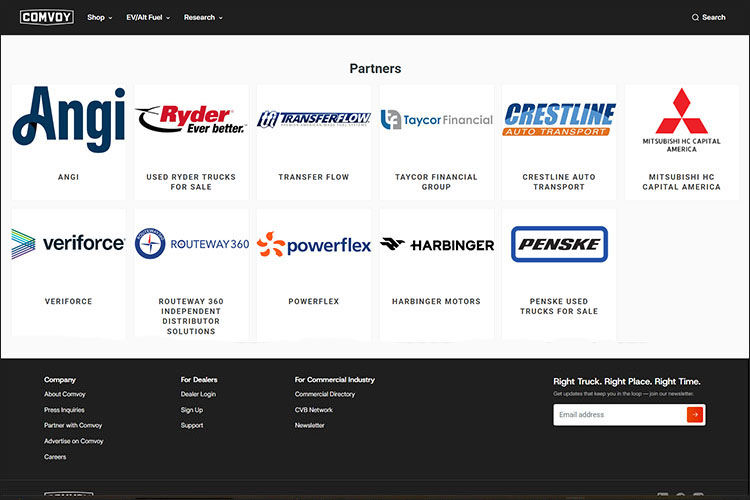How Commercial Vehicles Impact Construction's Top 5 Concerns


How Commercial Vehicles Impact Construction's Top 5 Concerns
The construction industry is walking a tightrope. A recent report from QBE North America paints a stark picture: cybersecurity threats, spiraling cost overruns, punishing interest rates, a persistent labor shortage, and the ever-present shadow of economic downturns loom large, especially with the tariff issues. But amidst these challenges, one crucial element often overlooked is the commercial vehicle fleet. These vehicles, the lifeblood of any construction project, are not just tools; they are a critical factor in mitigating or exacerbating the industry's top concerns.
Cybersecurity In The Construction Industry (Concern for 42% of respondents)
The modern construction vehicle is a rolling data center. GPS tracking, telematics, and onboard computers provide invaluable insights, but they also create vulnerabilities. As QBE's report highlights, cybersecurity is a paramount concern for 42% of construction professionals. Imagine a data breach compromising sensitive project blueprints, customer data, or even vehicle control systems. To combat this threat, prioritizing robust cybersecurity measures is a must. Partnering with vendors who prioritize data encryption and implement regular software updates and security audits is important. Consider your fleet vehicles as a point of entry into your network, and protect them as such.
Cost Overruns (Concern for 35%)
Cost overruns, a plague for 35% of contractors, are often amplified by inefficient fleet management. Fuel prices fluctuate, maintenance costs mount, and inefficient routing wastes valuable time and resources. Implementing telematics systems can revolutionize your approach. Optimize routes, monitor fuel consumption, and track maintenance schedules. Preventive maintenance is key; a single breakdown can derail a project, inflate labor costs, and even lead to loss of a customer. Furthermore, selecting the right vehicles for the job, such as a rollback tow truck when transporting equipment and avoiding overspending on underutilized assets are crucial for fiscal responsibility.
High Interest Rates (Concern for 33%)
With interest rates soaring (33% concern), financing vehicles becomes a daunting prospect, prompting contractors to weigh purchasing vs. leasing options more carefully. With borrowing costs on the rise, leasing can offer lower upfront expenses and predictable payments, preserving cash flow for other business needs. Meanwhile, purchasing provides long-term asset ownership and potential tax benefits. Now more than ever, businesses must analyze financial strategies to ensure their fleet remains efficient without overextending budgets.
Labor Shortages (Concern for 28%)
Labor shortages (28% concern) are a persistent headache. A well-organized, efficient fleet can help alleviate labor shortages by enhancing productivity and supporting workforce retention. Outfitting vehicles with the right technology—such as GPS tracking, telematics, and project management tools—streamlines operations, minimizes downtime, and boosts efficiency. Equipping work trucks with the proper upfits, like tool storage and material hauling solutions, ensures teams have what they need on-site, reducing unnecessary travel and fatigue. Investing in these upgrades not only optimizes workflow but also improves job satisfaction, making hiring and retention easier in a competitive market.
Economic Downturns (Concern for 28%)
Economic downturns (28% concern) demand adaptability. Consider leasing options or on-demand vehicle rentals to scale your fleet based on project demands. Diversify your fleet with adaptable vehicles that can handle various tasks. Prioritize fuel efficiency and maintenance to minimize operating costs during lean times. During slow times, consider downsizing the fleet, and then scale back up when needed.
Conclusion
The QBE North America report underscores the complex challenges facing the construction industry. By recognizing the critical role of commercial vehicle fleets in addressing these concerns, contractors can enhance operational efficiency, mitigate risks, and build resilience. A well-managed fleet is not just a transportation asset; it's a strategic investment in your company's future. Take proactive steps to optimize your fleet operations, and you'll be well-positioned to navigate the gauntlet and emerge stronger.
 About the author: Ryan E. Day is a communications specialist at Work Truck Solutions, where he turns complex ideas into engaging content that drives business impact across industries and platforms. With 13 years of experience in B2B content marketing, Ryan specializes in storytelling, strategic messaging, and digital optimization.
About the author: Ryan E. Day is a communications specialist at Work Truck Solutions, where he turns complex ideas into engaging content that drives business impact across industries and platforms. With 13 years of experience in B2B content marketing, Ryan specializes in storytelling, strategic messaging, and digital optimization.
Ryan's work has been featured in Comvoy, Quality Digest, Youtube, and Amazon Kindle. Connect with Ryan on his Linkedin page.
 Driving Business Growth Through Financial Flexibility: How You Buy Your Truck Matters
Driving Business Growth Through Financial Flexibility: How You Buy Your Truck Matters The Comvoy 2026 Event Calendar: We’ll See You There
The Comvoy 2026 Event Calendar: We’ll See You There Wheel Safety Is Your Business: How to Protect Your Fleet and Your Bottom Line
Wheel Safety Is Your Business: How to Protect Your Fleet and Your Bottom Line Harbinger Electric Step Vans and Cab Chassis Vehicles Now Available on Comvoy
Harbinger Electric Step Vans and Cab Chassis Vehicles Now Available on Comvoy Comvoy’s Partner Network: Your Shortcut to Smarter Fleet Solutions
Comvoy’s Partner Network: Your Shortcut to Smarter Fleet Solutions







